International Brain Week is a global campaign of the Day Foundation that is organized every year in March. The goal of the campaign is to popularize the science of the brain. This year’s Brain Week lasted from March 14 to March 20 2022, and on that occasion, the Laboratory for Experimental Psychology prepared a series of activities. The event started with a workshop on “How does the brain set and achieve goals?” During the workshop, students were able to learn which parts of the brain are involved in the process of setting and reaching the goal, as well as how important our beliefs are to us. The second day of the Brain Week event was dedicated to workshops for children of different ages. The youngest participants from the “Maslačak” and “Ciciban” kindergartens learned through the game what the brain is, what it is for, but also how our neurons in the brain transmit information and enable us to do everyday tasks. We were also visited pupils from elementary school “Georgi Stojkov Rakovski” and “Jovan Cvijić” who learned about basic brain functions through interactive activities, made neurons themselves, trained the brain through memory games. In the evening, we hung out with high school students and talked about the errors in thinking that our brains sometimes make, but also about ways to eliminate them. On the third day of the event, a lecture was organized on the topic of “Sleep Disorders”. Professor from the Faculty of Medicine prof. dr Duško Račić presented informations about processes that take place in the brain during sleep, what problems can occur and how they are treated. The fourth day of Brain Week was dedicated to lectures by psychologist and psychotherapist Ankica Baković. Two lectures were held on the topics “Neurofeedback: the basis of therapy and client experiences” and “The effect of the screen on children’s brains”. During the lecture, we were able to learn something about the non-invasive procedure that monitors an individual’s brain waves and gets feedback on it, which allows the adoption of new patterns of
brain work, bringing it to a state of optimal functioning. We also learned about the harmful effects that excessive exposure of children to the screen can have, why younger children are the most sensitive and how they actually see the screen. We closed this year’s Brain Week with a lecture on “Heuristics in the field of medicine” given by Anđela Diljević, a student from the Psychology Study Program. The lecture was attended by students of the Faculty of Medicine, so they could hear why heuristics can be of help to us, but also how we make mistakes because of them.
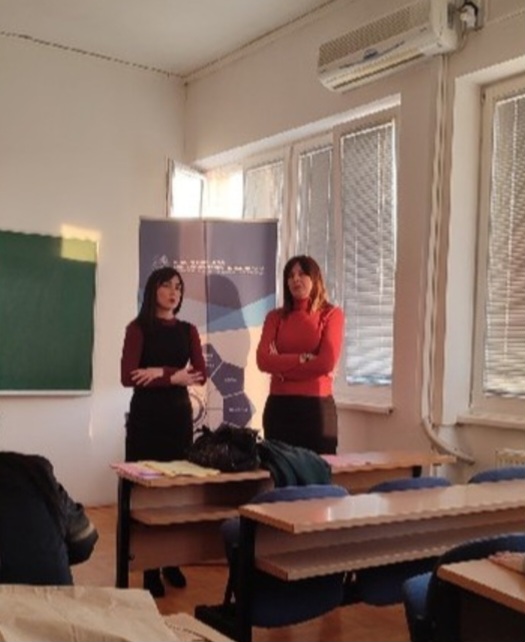
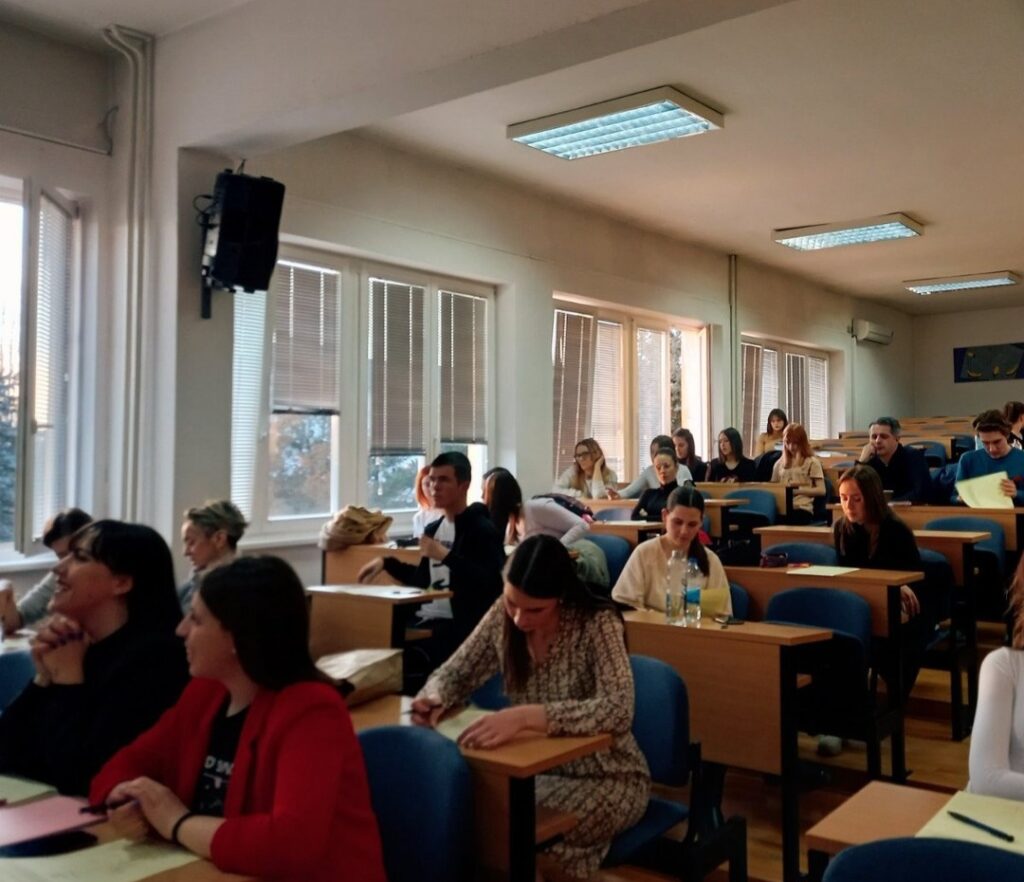
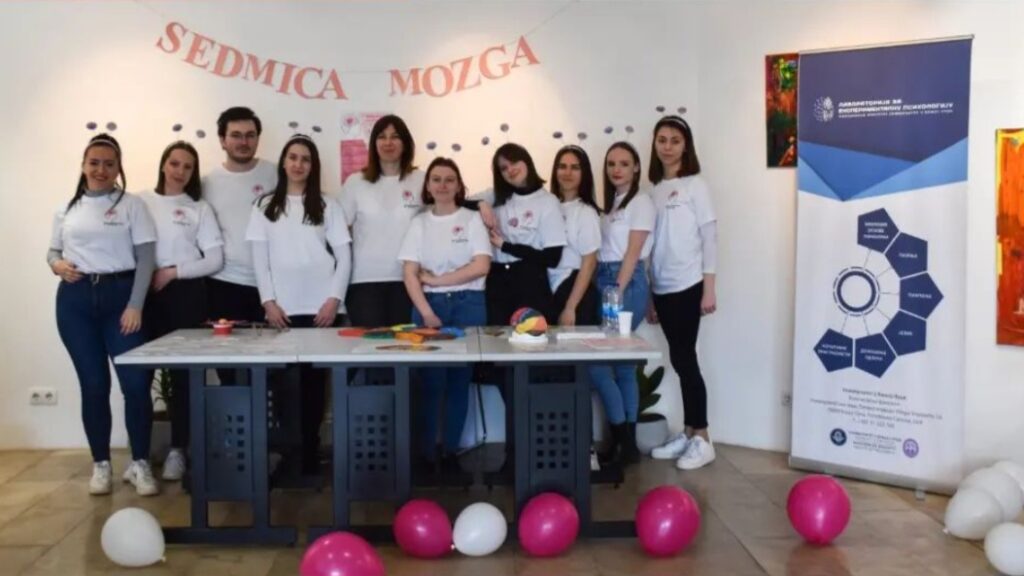
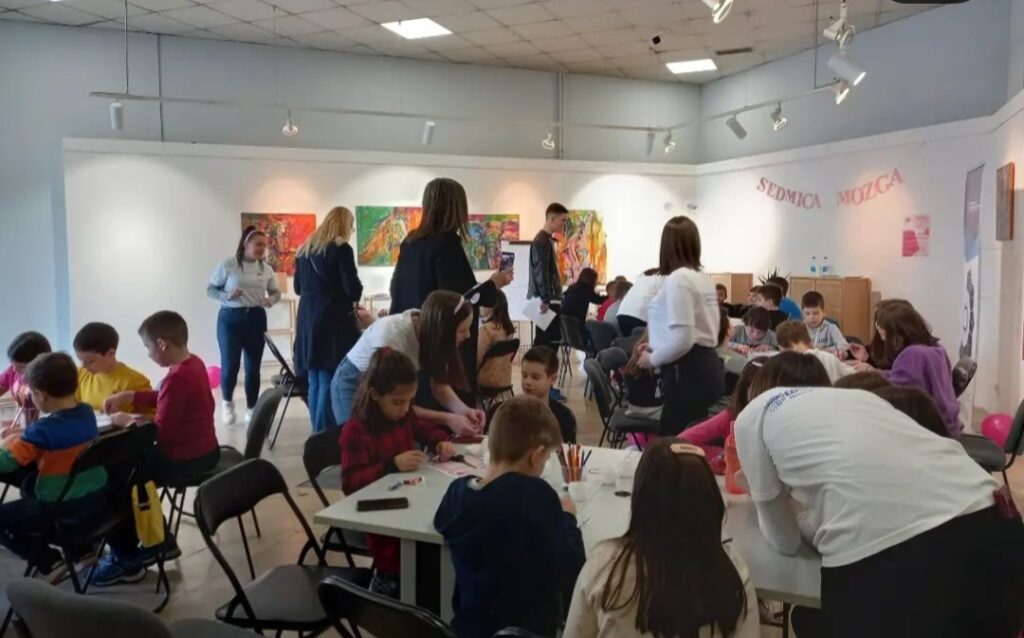
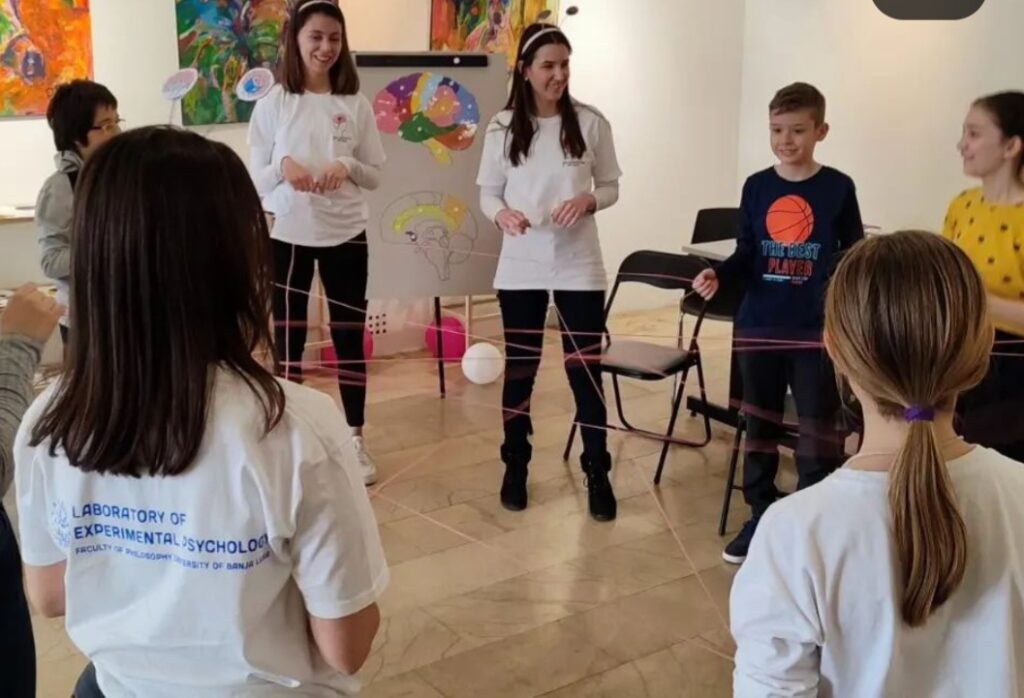
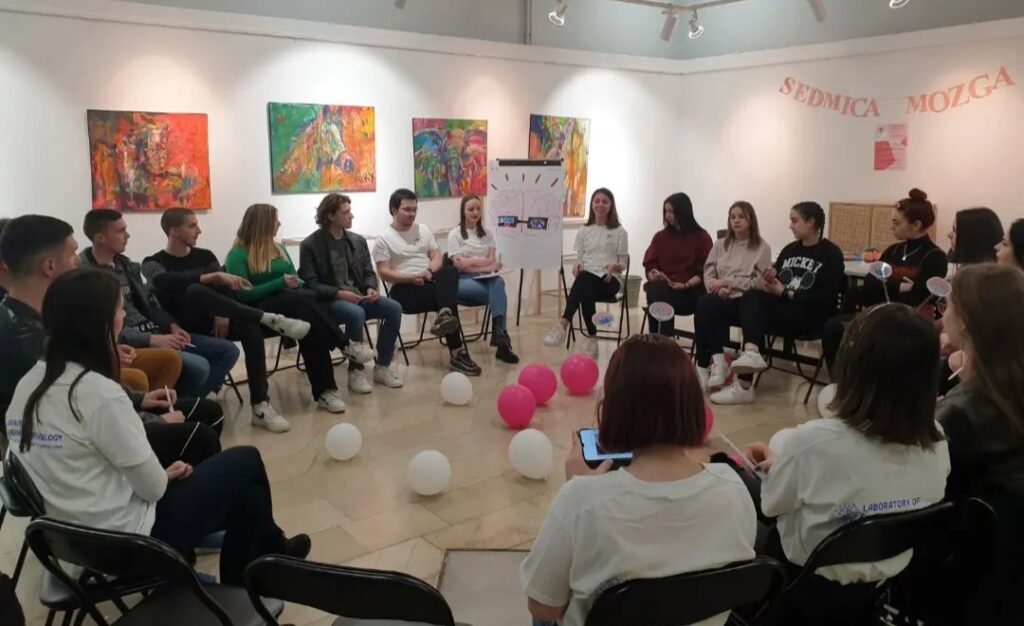
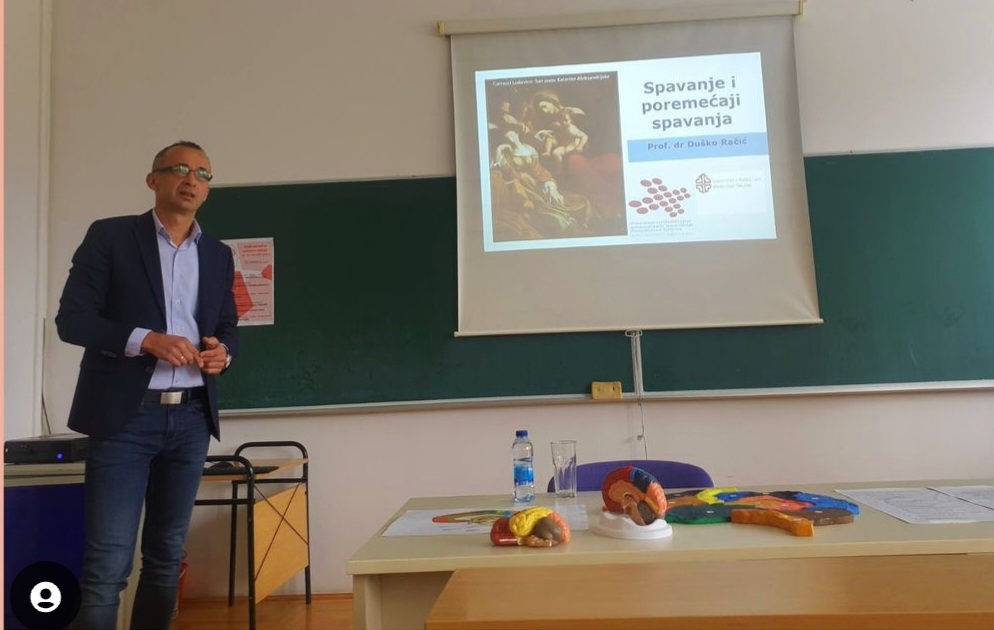
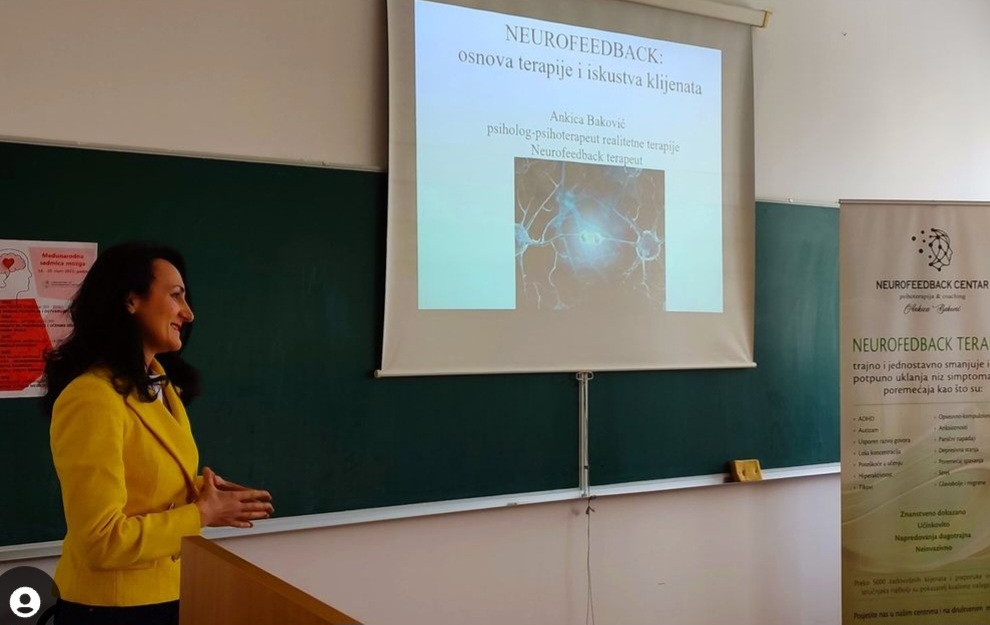
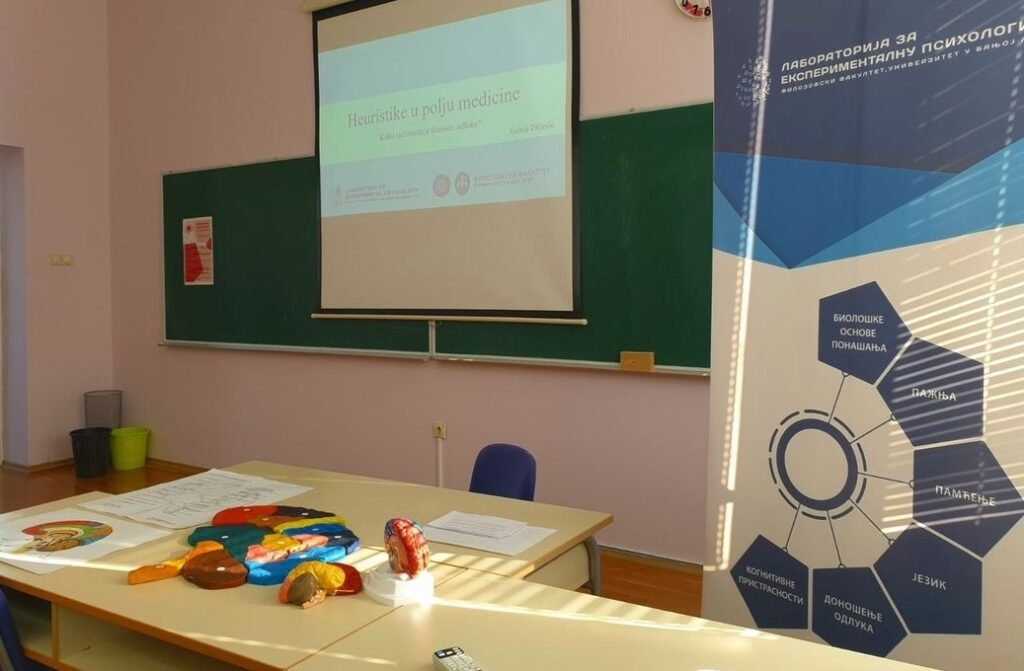
In 2021, The Laboratory of Experimental Psychology has joined the global campaign to mark BRAIN WEEK. This year, four special lectures were organized (Andraž Matkovič, Researcher at the Department of Psychology, Faculty of Arts, University of Ljubljana; Anđela Šoškić, Laboratory for Neurocognition and Applied Cognition, University of Belgrade; Ivan Zečević, Rehabilitation Center Stančić, Dugo Selo). During the lecture, participants learned about the basics of neural networks. Brain connectivity refers to a pattern of anatomical links (“anatomical connectivity”), of statistical dependencies (“functional connectivity”) or of causal interactions (“effective connectivity”) between distinct units within a nervous system. A pilot study on the application of studies of brain networks in the identification of mental disorders was presented. Further, ways of applying ERP signals in psychological research of cognitive processes were presented. Participants also learned about ways of neuropsychological treatment of dementia and hypersomnia. Raising awareness of the importance of the brain, especially in the field of psychology. Organized lectures enabled networking with experts from countries in the region.
In 2020, Laboratory of Experimental Psychology joined a global initiative aimed at raising awareness about the relevance of brain, Brain awareness week. We prepared numerous lectures for university students and wider audience, including other outreach activities in primary and secondary schools. Unfortunately, due to pandemics we were unable to conduct them. To compensate, Daniel Polimac (University of Belgrade) held an online lecture titled ‘Artificial Intelligence: Roads and Wastelands’ to sign a symbolic start of our involvement in this important initiative.
